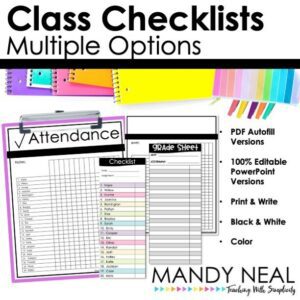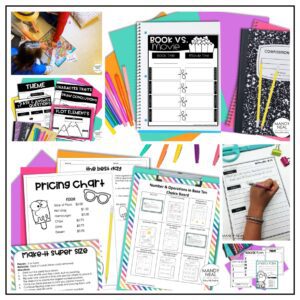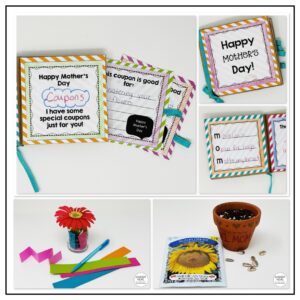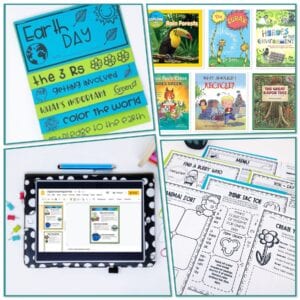Field trips are the highlight of our students’ school year and offer them a change of scenery. But behind the scenes, we are the conductors juggling various factors to ensure a smooth and successful field trip. Preparing for the field trip, executing it, and culminating the experience takes a lot of organization! After years of experience, I’ve compiled a list of tips to help you plan a successful field trip.
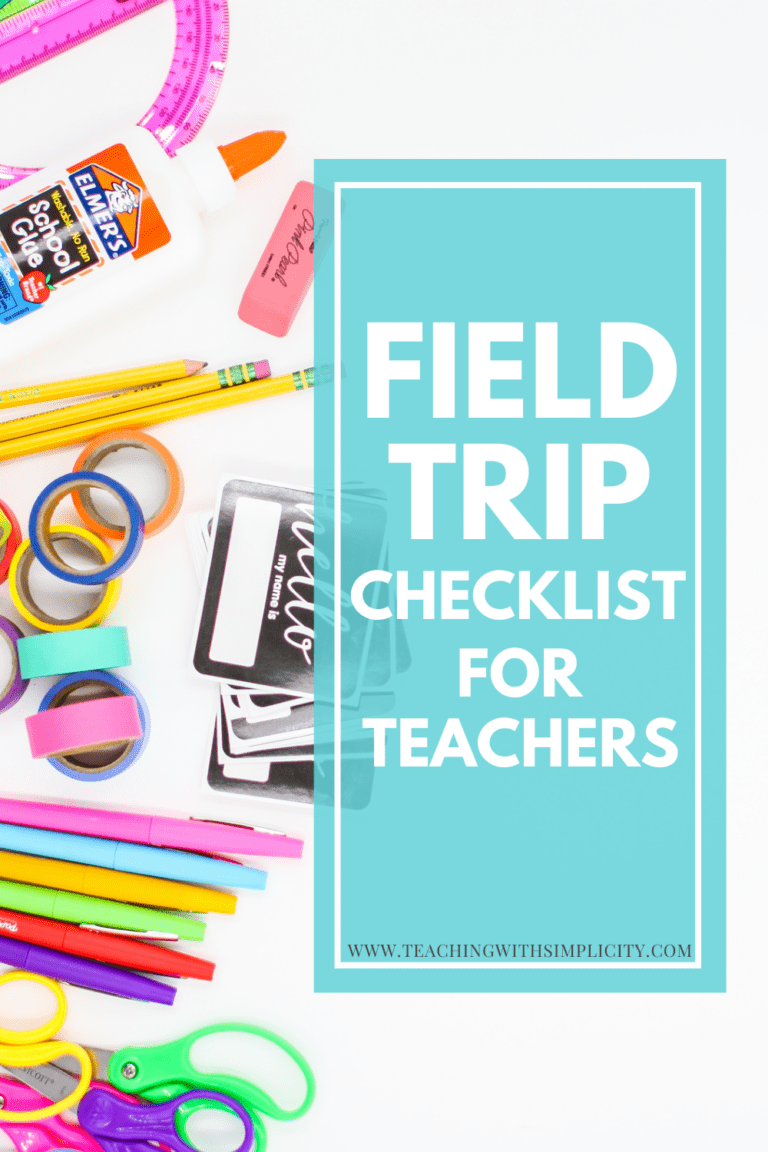
Pre-Trip Preparation
1. Research Your Destination
Understanding the goals of your trip and how you can incorporate an educational component is essential. This includes researching the venue’s educational value and potential safety concerns. Contact the site to confirm availability and any rules or requirements for visitors.
2. Permission Slips
Compile and distribute permission slips with clear instructions. Ensure all necessary contact and medical information is included and that parents fully understand the nature of the trip.
3. Keeping Track of Permission Slips and Money
After permission slips are sent home, they will begin to trickle back in.
Use a student checklist to track who has returned their permission slip and money. Keep the money and permission slips in a safe place.
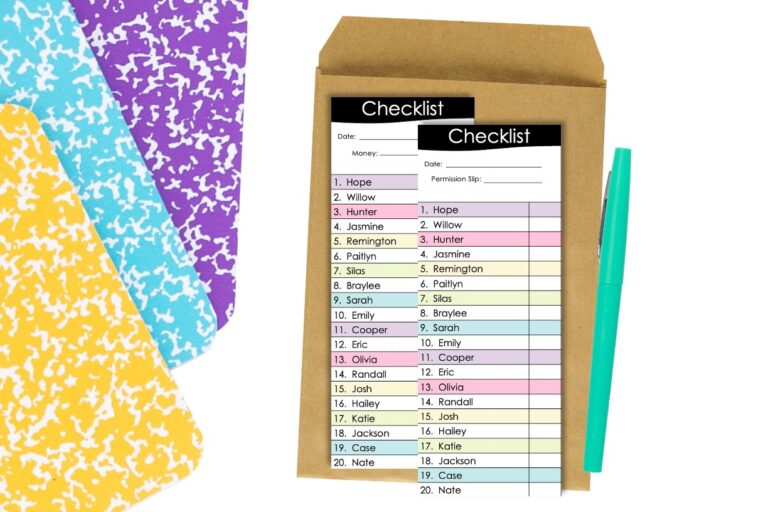
4. Transportation Arrangements
Book transportation well in advance with your school district. Determine how many buses are needed to transport all the students and teachers. Take into consideration how many students you will have per seat.
5. Lunch
Will students bring their lunch, have a school lunch, or eat at a destination?
Once lunch has been determined, if students bring their own lunch, you will need to devise a plan to transport the lunches. Taking a cooler to keep food and drinks cold may be required.
6. Emergency Protocols
Develop a comprehensive plan for potential emergencies, including a schedule for check-ins and contacts. If you have parents attending who are serving as chaperones, share the plan with them and ensure everyone carries a list of important contacts.
Packing and Preparing for Success
7. Teacher Essentials
A bag or backpack to carry all your stuff, a whistle, and contact numbers for the school secretary and principal nurse.
8. First Aid Kit
Carry a well-stocked first aid kit. Be prepared to handle common field trip injuries and ensure someone on the team is trained in basic first aid.
9. Medication Documentation
Bring a list of students with medical needs, along with their medications and instructions. You may need to administer medication during the trip, so have a clear protocol in place.
10. Dietary Requirements
Collect information on any student dietary restrictions and plan meals accordingly. Bring non-perishable snacks in case of delays.
11. Clothing Considerations
Remind students to dress appropriately for the weather and terrain of the destination.
12. Communication Devices
Carry fully charged cell phones or walkie-talkies for easy communication. If you are going to an area with poor reception, consider using other forms of communication, such as whistles.
13. Roll Call Sheet
Prepare a roll call sheet with the names of all students. Do a roll call before leaving the school and leaving the field trip destination to ensure everyone is accounted for.
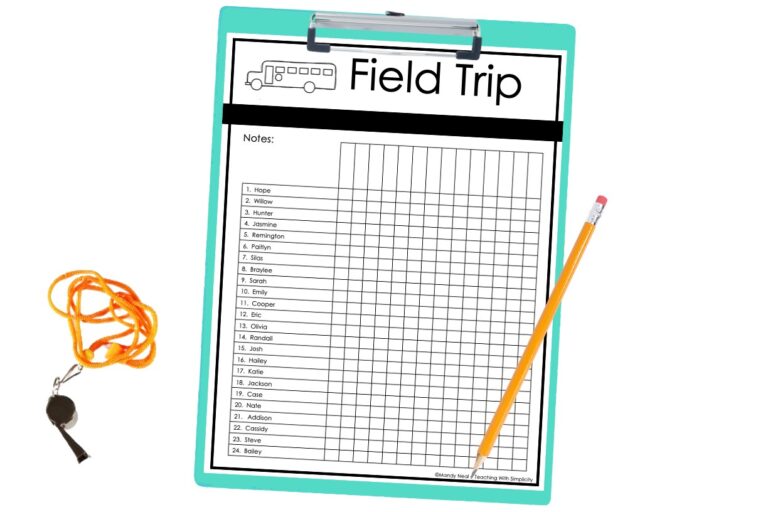
14. Field Trip Itinerary
Have a detailed itinerary outlining the trip’s timing—from departure to return. Share this with students, parents, and administration, and review it before and during the trip to maintain schedule adherence.
On the Day of the Trip
15. Grouping Plans
Decide on the group sizes and designate leaders for each. Ensure each group has a chaperone and has received the necessary materials and guidance.
16. Student Expectations
Review behavioral expectations with the students, emphasizing the importance of respecting the venue, abiding by the safety rules, and listening to the instructions of their teachers and chaperones.
17. Bus Ride
On the bus ride to and from your destination, monitor your students’ behavior and voice levels so that the bus driver can safely transport them.
18. Sign-out sheet
If your school allows students to leave the field trip destination with parents, have a sign-out sheet prepared for parents to sign their students out.
Post-Trip
19. Thank-You Notes
Show appreciation to the chaperones and any staff or guides at the field trip site. This strengthens the school’s relationship with community partners and sets an example for students to express gratitude.
Optional Items to Consider
- Name tags/lanyards for students
- Matching school shirts
- Remind students they can bring spending money.
- For you, get a good night’s sleep the night before!!
Conducting a successful field trip takes time, effort, and a lot of planning. With this checklist, you’re well-equipped to lead your students on an adventure that will impact their learning and memories.
SHOP THIS POST
